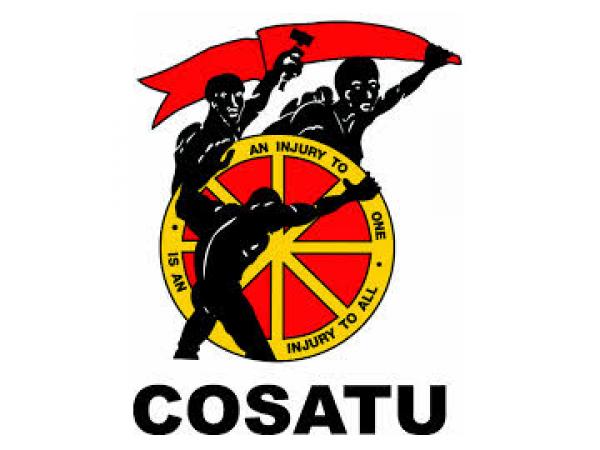COSATU schisms make for a rocky road

We are in the midst of all the usual fanfare, the pledges, promises, rows and contradictions that accompany any run-up to a major election. But the scheduled national poll on 7 May seems to be beset by more bickering, bitterness and fragmentation than normal — and this is a clear portent for the future.
In fact, this election has been characterised as no more than a speed hump on the road ahead, that is littered with the postponed problems of the past and present. For the governing ANC, greatly increased tension with its trade union partners seems on the cards. And much of this should centre on the long delayed special congress of the ANC’s alliance partner, Cosatu.
The congress was called for last year by nine of the federation’s affiliates. And, according to the Cosatu constitution, it should have been agreed to after 14 days. It was not and resulted in the biggest union in the federation, the National Union of Metalworkers (Numsa) staging its own special congress where delegates decided to withdraw support from the ANC.
It was the Cosatu special congress call that caused deep concern within the governing party and its other alliance partner, the South African Communist Party. A special congress might not only eject the majority of the present Cosatu leadership, it could also reject the alliance. The fear was that this could lead to the fragmentation of the federation and would harm the electoral prospects of the ANC.
Although much of the row centred on the position of suspended Cosatu general secretary, Zwelinzima Vavi, he was merely the catalyst. For, unlike the Numsa leadership who supported him, he remains committed to the ANC and the tripartite alliance. He personifies the split between factions supporting and opposing President Jacob Zuma.
Initial attempts by the pro-Zuma majority on the Cosatu executive to force Numsa to resign from the federation failed and a decision was taken to expel the troublesome union. However, constitutionally, such a move has to be ratified — and may be overturned — by a national congress, but this could be delayed until after the May 7 elections.
The same, it was thought, could apply to Vavi who had won a court order for his reinstatement because his suspension had been unprocedural. He could be properly suspended and both matters delayed until well beyond May 7. If, in the meantime, Vavi and Numsa reacted by “going independent” there would be no need for a special congress.
However, it was soon realised within the ANC that the expulsion of Numsa and second suspension of Vavi could create a multitude of problems on the eve of elections. It was this that precipitated the intervention last week of ANC deputy president Cyril Ramaphosa and deputy secretary-general Jessie Duarte.
Following a meeting of the ANC national executive, that was also attended by Cosatu president S’dumo Dlamini and National Education Health & Allied Workers’ Union general secretary Fikile Majola, Ramaphosa and Duarte attended the Cosatu executive meeting. The upshot was that all matters were delayed for month. So Vavi returned, in the meantime, to his post as general secretary and Numsa remains a Cosatu affiliate.
The result was that the myth of Cosatu unity was again propagated in a series of election slogans. These simply ignore the fact that Numsa, with roughly a quarter of the Cosatu membership, no longer supports the ANC.
There is also the call by Numsa for a post election “national convention” to discuss “an alternative way forward”. This seems to be gathering support among various unions, community groups and even the “Sidikiwe — Vote No” campaign launched this week.
The full fallout from the damning report on Nkandla by public protector Thuli Modonsela is also still to come in the wake of the election along with the result of the Farlam Commission into the Marikana massacre and the delayed signing into law of the Protection of State Information — “Secrecy” — Bill. Remaining issues that all Cosatu factions oppose include e-tolls, labour brokers and the overall thrust of the National Development Plan.
A post-election complaint from the Cosatu-affiliated Food and Allied Workers’ Union should also result in some hard talking. FAWU is furious that an estimated R6 million in government handouts over the past year went to the controversial entrepreneur turned union boss and ANC winelands election campaigner, Nosey Pieterse .
That these schisms can be papered over seems as unlikely as the ANC losing the national election on May 7. So the road beyond the electoral speed hump could be rocky indeed.

This article is licensed under a Creative Commons Attribution-NoDerivatives 4.0 International License.


